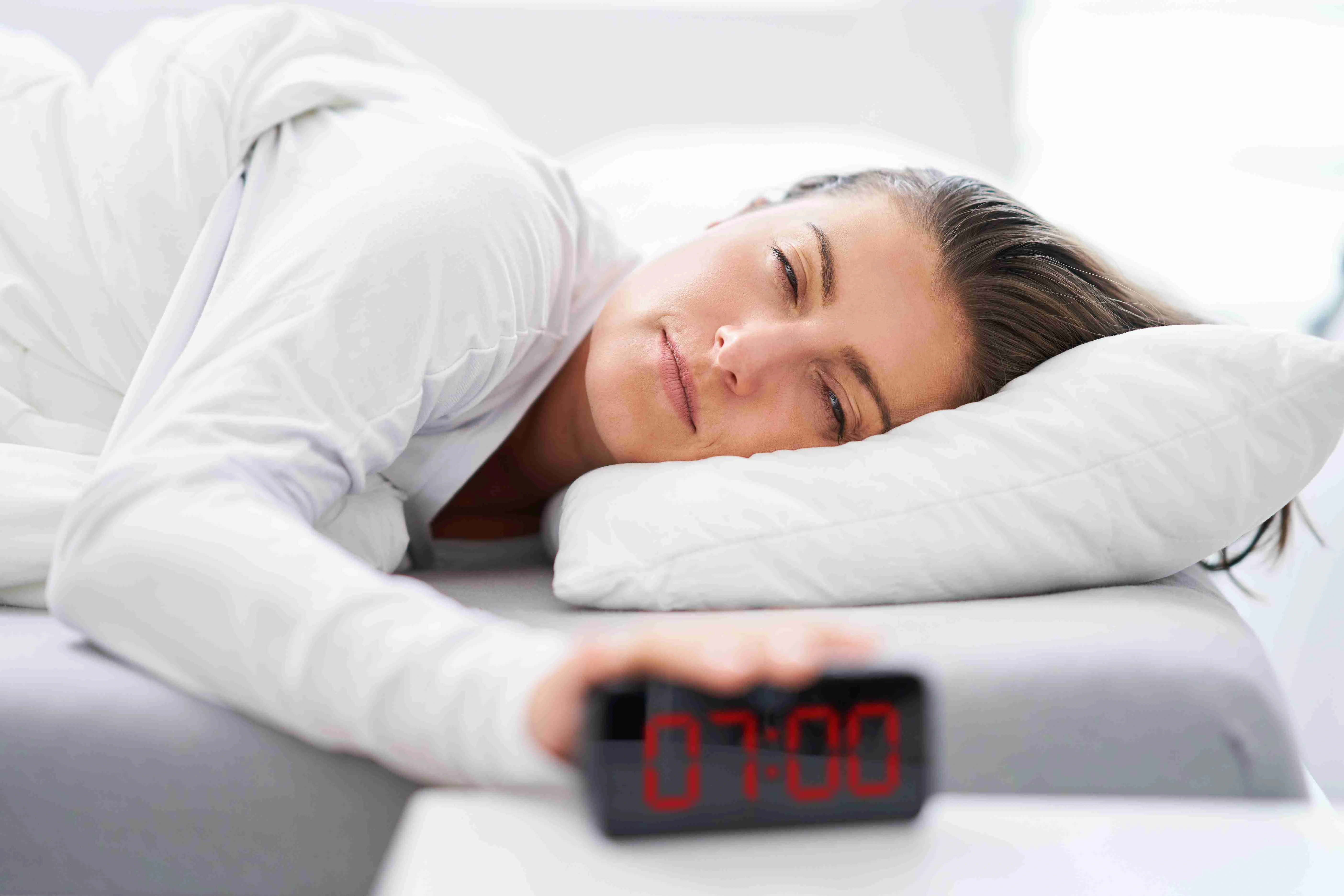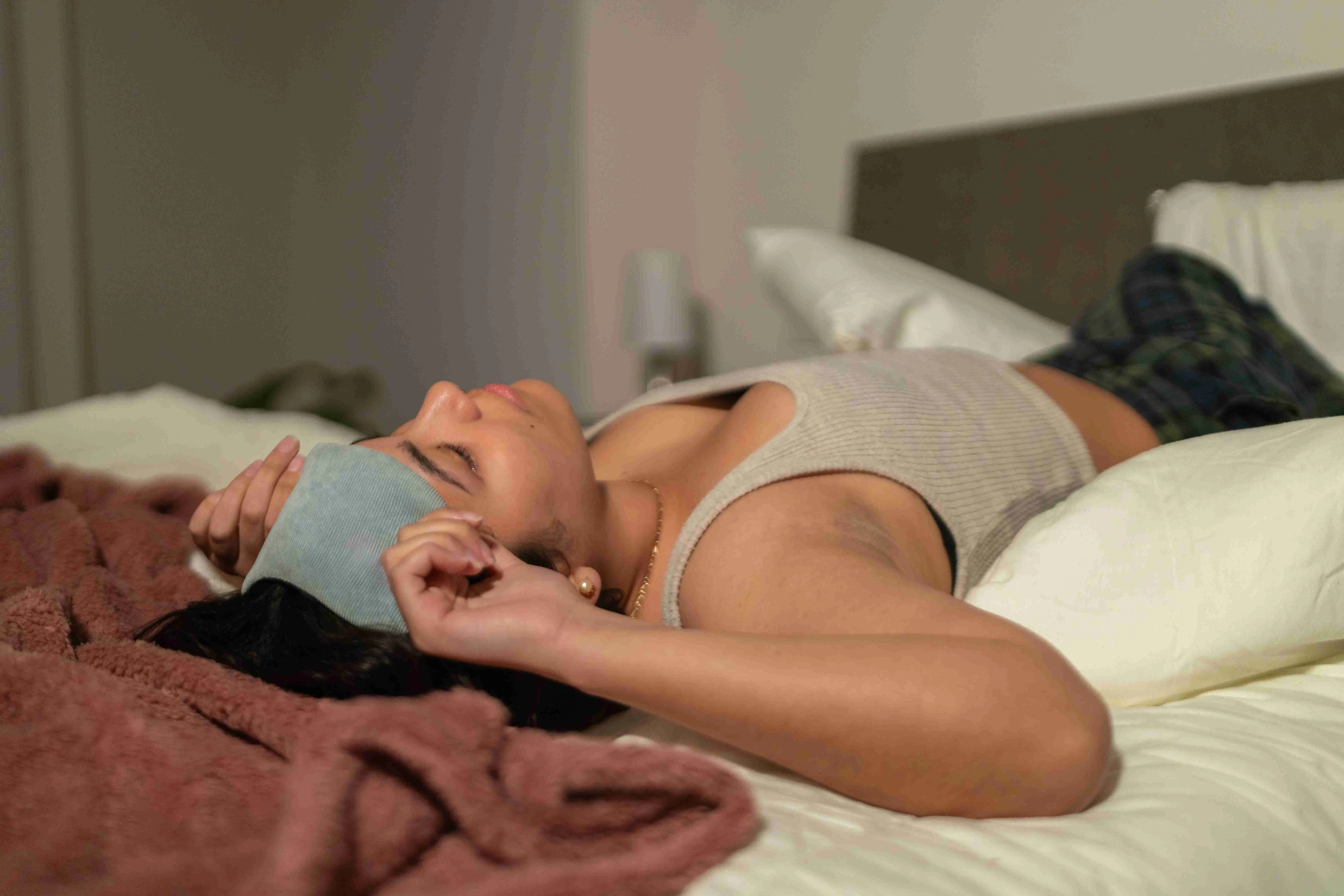In the pursuit of optimal health and well-being, one crucial aspect often overlooked is the quality of our sleep. While many focus on the number of hours spent in slumber, the journey to restorative rest begins even before we drift off. This is where sleep latency, a measure of how long it takes you to transition from wakefulness to sleep, plays a pivotal role.
In this article, we'll delve into the intricacies of sleep latency, its significance, and practical strategies to enhance this vital aspect of your nightly routine.
Sleep Latency Definition
Sleep latency refers to the duration between the time you lie down to sleep and the moment you fall asleep. It is a critical indicator of your sleep quality and can significantly impact your overall health and daily functioning.
A prolonged sleep latency can lead to frustration, anxiety, and a vicious cycle of poor sleep, while a shorter sleep latency is often associated with better sleep quality and overall well-being.
The Importance of Sleep Latency for Overall Health

Adequate sleep is essential for physical and mental rejuvenation, and sleep latency plays a crucial role in achieving this goal. A shorter sleep latency allows you to spend more time in the restorative stages of sleep, promoting:
Improved Cognitive Function and Mental Clarity
A shorter sleep latency helps you get to the deep sleep stages faster, which are critical for cognitive functions like memory, attention, and learning.
By spending more time in restorative sleep, your brain can process and organize information, leading to enhanced mental clarity and better decision-making throughout the day.
Enhanced Immune System Response
Faster sleep onset allows your body to reach deep sleep, which is essential for immune system function.
The body repairs and strengthens itself during these stages, making it better equipped to fight off illness and recover from stressors. A shorter sleep latency can, therefore, contribute to better overall health by improving immune response.
Better Regulation of Hormones and Metabolism
Sleep plays a crucial role in regulating hormones that control hunger, stress, and metabolism. A quicker onset of sleep ensures that you reach deep sleep, where the body balances these hormones.
Reduced Risk of Chronic Conditions
Poor sleep latency is linked to an increased risk of chronic health issues such as heart disease, diabetes, and obesity.
A shorter sleep latency ensures more time in the beneficial stages of sleep, reducing inflammation and supporting cardiovascular health.
Improved Mood and Emotional Well-Being
Sleep has a direct impact on mood regulation. When you fall asleep quickly, you can spend more time in deep, restorative sleep, which is vital for emotional health.
Better sleep latency can reduce feelings of anxiety, depression, and irritability, promoting an overall sense of well-being.
Factors Affecting Sleep Latency
Several factors can influence your sleep latency, including:
Circadian Rhythms
Your body’s internal clock, or circadian rhythm, regulates the sleep-wake cycle. Disruptions in circadian rhythms, such as those caused by shift work or jet lag, can delay sleep onset and increase sleep latency.
Sleep Environment
A sleep-conducive environment, including factors like noise, light, and temperature, can significantly affect how quickly you fall asleep. A quiet, dark, and cool environment promotes relaxation, helping to reduce sleep latency.
Psychological Factors
Stress, anxiety, and depression can interfere with sleep onset. Worrying or ruminating before bed can increase the time it takes to fall asleep, as the mind remains active and alert.
Lifestyle Habits
Habits like consuming caffeine, alcohol, or nicotine close to bedtime, or engaging in stimulating activities like heavy exercise or screen time, can negatively impact sleep latency. Establishing a calming pre-sleep routine can help improve sleep onset.
Medical Conditions and Sleep Disorders
- Insomnia: Insomnia is a condition where falling asleep is difficult, leading to prolonged sleep latency.
- Sleep Apnea: Sleep Apnea is interrupted breathing during sleep can prevent deep sleep, resulting in longer sleep latency.
- Restless Leg Syndrome (RLS): RLS is a condition characterized by an irresistible urge to move the legs, which can delay sleep onset.
- Circadian Rhythm Disorders: Circadian Rhythm Disorders like delayed sleep phase disorder, can cause individuals to struggle to fall asleep at typical hours, affecting sleep latency.
Measuring Sleep Latency
There are several methods used to measure sleep latency, which can help diagnose sleep issues or monitor sleep patterns:
Polysomnography
Polysomnography is an overnight sleep study used to measure various aspects of sleep, including sleep latency, brain activity, breathing, and heart rate. This method is commonly used to diagnose sleep disorders like sleep apnea.
Multiple Sleep Latency Test (MSLT)
The MSLT is a test used to objectively measure how long it takes a person to fall asleep during the day. It is often used to assess conditions like narcolepsy and excessive daytime sleepiness.
Home-Based Sleep Trackers
Home-based sleep trackers, such as wearable devices or apps, can provide insights into sleep latency and overall sleep quality.
While they may not be as precise as clinical tests, they can offer valuable information about sleep patterns and potential disruptions.
Normal vs. Abnormal Sleep Latency

While individual variations exist, generally accepted guidelines for sleep latency are:
Optimal Sleep Latency Range
- 10-20 minutes: Considered an ideal sleep latency range, indicating a healthy sleep pattern.
- Less than 10 minutes: This may suggest excessive sleepiness or sleep deprivation.
Signs of Prolonged or Shortened Sleep Latency
- More than 30 minutes: This may indicate insomnia or other sleep-related issues.
It's important to note that these guidelines are not absolute, and individual factors, such as age, lifestyle, and overall health, should be considered when evaluating sleep latency.
Health Implications of Abnormal Sleep Latency
Abnormal sleep latency, whether it’s taking too long to fall asleep or experiencing frequent disruptions before reaching deep sleep, can have significant effects on both mental and physical health.
Mental Health and Cognitive Function
Abnormal sleep latency can severely affect mental health and cognitive function. When it takes longer than usual to fall asleep, it often leads to insufficient sleep, which impairs brain function and emotional regulation. Chronic sleep delays may result in:
- Decreased Cognitive Performance: Prolonged sleep latency reduces the amount of time spent in the deeper, restorative stages of sleep, which are crucial for memory consolidation, learning, and cognitive processing.
- Impaired Mood and Emotional Well-Being: Inadequate sleep due to abnormal sleep latency is linked to higher levels of irritability, anxiety, and depression. The brain's ability to regulate emotions becomes diminished, making individuals more prone to stress and mood swings.
- Increased Risk of Mental Health Disorders: Over time, consistently poor sleep latency can increase the risk of developing mental health issues such as depression, anxiety disorders, and even more severe conditions like bipolar disorder and schizophrenia.
- Cognitive Decline: For older adults, abnormal sleep latency may contribute to long-term cognitive decline and increase the risk of developing conditions like dementia or Alzheimer's disease.
Physical Health
Abnormal sleep latency also has serious implications for physical health. When sleep onset is delayed or disrupted, the body misses out on the restorative effects of sleep, which are necessary for proper physical functioning.
- Weakened Immune System: Lack of sufficient sleep caused by prolonged sleep latency impairs the immune system, leaving the body more vulnerable to infections and illnesses.
- Increased Risk of Chronic Conditions: Abnormal sleep latency has been linked to an increased risk of several chronic conditions, including heart disease, diabetes, and hypertension. Sleep is essential for cardiovascular health, blood pressure regulation, and glucose metabolism, and disrupted sleep can negatively impact these systems.
- Weight Gain and Metabolic Issues: Sleep is a critical regulator of metabolism and appetite hormones. Poor sleep quality, due to delayed sleep onset, can lead to an imbalance in hormones like ghrelin and leptin, which control hunger, leading to overeating and weight gain.
- Hormonal Imbalances: Sleep latency issues can also disrupt the balance of hormones that regulate stress (such as cortisol) and growth (such as growth hormone). Chronic disruptions in sleep can cause elevated cortisol levels, leading to increased stress, anxiety, and even muscle breakdown over time.
- Decreased Physical Performance and Recovery: Athletes or individuals who engage in regular physical activity may find that abnormal sleep latency hampers recovery and physical performance. Sleep is essential for muscle repair, energy restoration, and optimal physical function.
Tips to Improve Sleep Latency

Implementing healthy sleep habits and lifestyle changes can significantly improve your sleep latency and overall sleep quality. Here are some effective tips:
Establish a Consistent Sleep Schedule
Maintaining a regular sleep-wake routine is essential for regulating your body’s internal clock. Going to bed and waking up at the same time each day helps signal to your body when it's time to sleep and when it's time to wake, making it easier to fall asleep quickly at your desired bedtime.
Create a Sleep-Conducive Environment
A cool, dark, and hygienic environment promotes relaxation and makes it easier to fall asleep. Consider using blackout curtains, earplugs, or a white noise machine to block out disruptions.
Keeping your bedroom temperature comfortable (ideally between 60-67°F or 15-19°C) can also enhance your chances of falling asleep faster.
Practice Relaxation Techniques
Relaxation exercises can help calm your body and mind, making it easier to fall asleep. Techniques like deep breathing, progressive muscle relaxation, or guided meditation can lower stress and prepare your body for sleep.
Limit Screen Time Before Bed
Exposure to the blue light emitted by phones, tablets, and computers can interfere with melatonin production and disrupt your circadian rhythm.
Try to avoid screens at least 30 to 60 minutes before bedtime. Instead, opt for relaxing, non-stimulating activities like reading a physical book or practicing light stretches.
Learn more about How Electronics Affect Sleep.
Exercise Regularly
Regular physical activity promotes overall health and improves sleep quality. However, be mindful not to exercise too close to bedtime, as this can increase alertness and make it harder to fall asleep. Aim for moderate exercise earlier in the day to benefit from improved sleep latency.
Learn more about How Exercise Affects Sleep.
Avoid Caffeine and Alcohol Close to Bedtime
Both caffeine and alcohol can interfere with your ability to fall asleep quickly. Caffeine is a stimulant that can stay in your system for several hours, while alcohol can disrupt your sleep cycle.
Try to avoid consuming these substances in the evening to ensure a faster, more restful night of sleep.
Address Stress and Anxiety
Stress and anxiety are common culprits of poor sleep. Incorporating stress-reducing activities, such as meditation, journaling, or practicing mindfulness, can help calm your mind and ease tension. Managing stress during the day helps promote relaxation at night, improving your ability to fall asleep faster.
Incorporating stress-reducing activities, such as meditation, exercises, or journaling, into your daily routine can help calm your mind and promote better sleep.
FAQs
Is it normal to have occasional nights with longer sleep latency?
Yes, it's normal to experience occasional nights with longer sleep latency due to factors like stress, jet lag, or temporary disruptions in your routine. However, if prolonged sleep latency persists for more than a few weeks, it may indicate an underlying sleep issue that should be addressed.
Can napping during the day affect sleep latency at night?
Yes, excessive napping or napping too close to your desired bedtime can interfere with your body's natural sleep-wake cycle and make it harder to fall asleep at night, leading to prolonged sleep latency.
Is it better to stay in bed if you can't fall asleep or get up and do something else?
If you've been lying awake for more than 20-30 minutes, we generally recommend getting up and engaging in a relaxing activity, such as reading or light stretching, in a dimly lit environment. Staying in bed can lead to frustration and associate your bed with wakefulness, making it harder to fall asleep.
Can exercise help improve sleep latency?
Yes, regular exercise can promote better sleep quality and potentially reduce sleep latency. However, it's important to avoid intense workouts close to bedtime, as the physical and mental stimulation can make it harder to fall asleep.
Is it possible to improve sleep latency without medication?
Many lifestyle changes, sleep hygiene practices, and natural remedies can effectively improve sleep latency without the need for medication. However, if you're experiencing persistent sleep issues, consulting with a healthcare professional is recommended to explore appropriate treatment options.
Conclusion
Prioritizing sleep latency is a crucial step to ensure having a restful sleep. By understanding the factors that influence your ability to fall asleep quickly and implementing practical strategies to improve sleep latency, you can unlock the benefits of restorative sleep and experience a positive ripple effect on your physical, mental, and emotional well-being.
Dom Abraham
As the lead content writer at Sleepiverse. Dom pours his heart into writing mattress reviews, bedding product reviews, and medically-reviewed health articles. Dom is from Portugal and likes to spend his free time writing on the beach as it gives him a sense of comfort. Aside from writing mattress reviews in front of the soothing beach view, Dom likes to experiment with new amazing food ideas.


